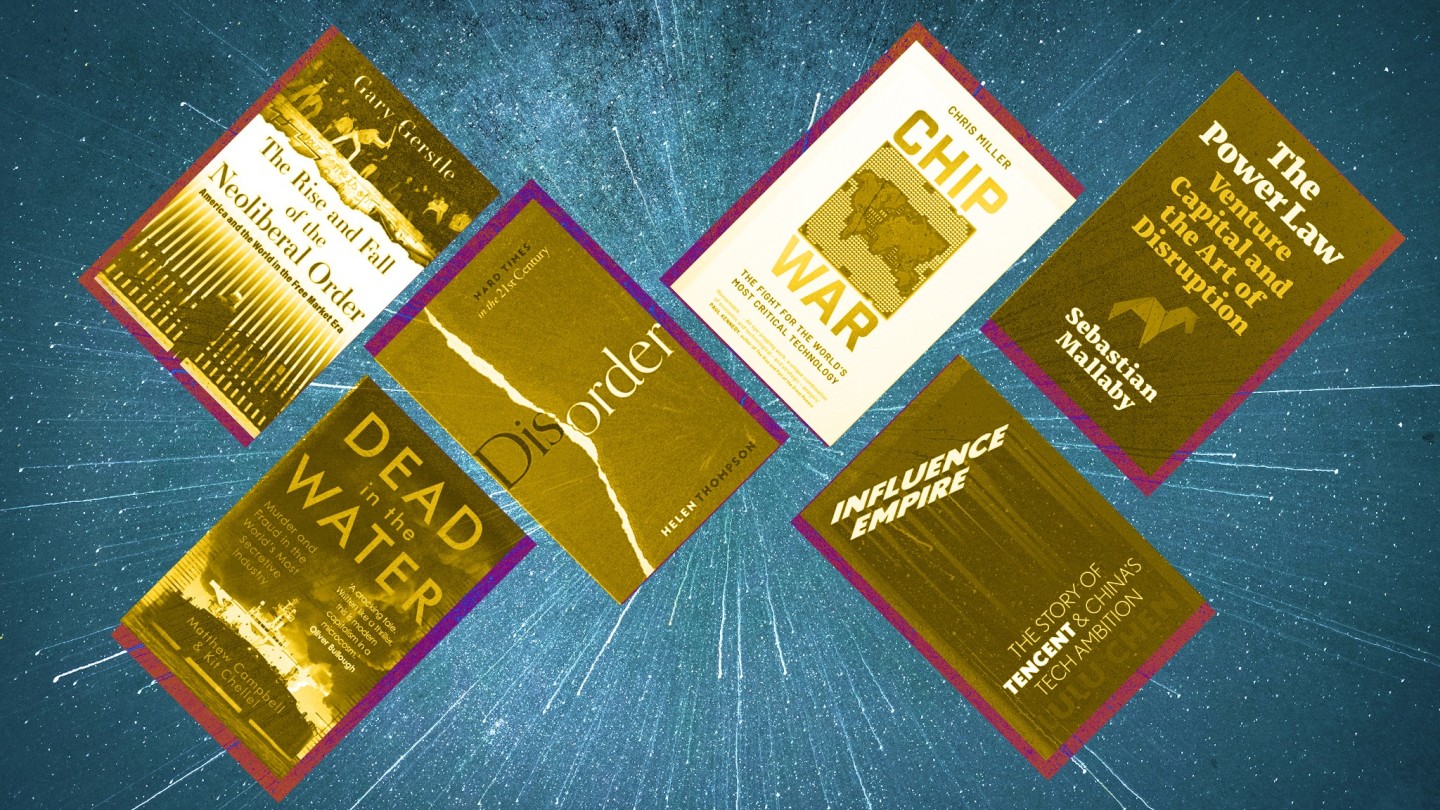Business book of the year 2022 — the shortlist

Roula Khalaf, Editor of the FT, selects her favourite stories in this weekly newsletter.
The Financial Times has announced the shortlist for the 2022 Business Book of the Year Award, which pits explorations of the geopolitics of energy and the development of free markets against investigations into venture capital, shipping and the technology industry.
The titles tackle “some of the toughest and most important issues facing global capitalism”, said Roula Khalaf, FT editor and chair of judges, praising the authors for their “deep knowledge and extensive investigation”. From a longlist of 15 books, the panel selected six finalists for the £30,000 award:

Dead in the Water: Murder and Fraud in the World’s Most Secretive Industry, by Matthew Campbell (pictured) and Kit Chellel, digs into courtroom revelations of fraud and unsolved murder surrounding an apparent attack on a tanker, to shed light on the global shipping industry and how it is financed.

Influence Empire: The Story of Tencent and China’s Tech Ambition, by Lulu Chen, tracks the rise of Tencent, developer of China’s “everything app” WeChat, and its founder Pony Ma, and where they fit into the Chinese technology economy.

The Rise and Fall of the Neoliberal Order: America and the World in the Free Market Era, by Gary Gerstle, looks at how the creed of free trade and free markets became embedded in the closing decades of the 20th century and at the consequences unleashed by its neoliberal true believers.

The Power Law: Venture Capital and the Art of Disruption, by Sebastian Mallaby (whose biography of Alan Greenspan, The Man Who Knew, won the award in 2016), examines the roots and the role of venture capitalists in the success of Silicon Valley and some of the world’s largest technology companies.

Chip War: The Fight for the World’s Most Critical Technology, by Chris Miller, unpicks the long supply chains that make up the complex and increasingly fragile network that builds and assembles semiconductors, and examines the implications of our global dependency on a few vast manufacturers.

Disorder: Hard Times in the 21st Century, by Helen Thompson, analyses the profound effects of recent energy volatility, which continues to provoke global tension and determine and disrupt international politics and policymaking.
Khalaf announced the finalists online on September 22. The award itself will be presented at a dinner in London on December 5, where the winner of the £15,000 Bracken Bower Prize (for business book proposals by an author aged under 35) will also be announced.
The Business Book of the Year Award was first presented in 2005. The prize goes to the book that provides “the most compelling and enjoyable” insight into modern business issues. Each of the runners-up will receive £10,000.
Nicole Perlroth’s sobering investigation into the cyber weapons arms race, This Is How They Tell Me the World Ends, was last year’s winner.
The other judges of the 2022 award are: Mimi Alemayehou, senior vice-president for public-private partnerships at Mastercard’s humanitarian and development group; Mitchell Baker, chief executive, Mozilla Corporation; Mohamed El-Erian, president, Queens’ College, Cambridge, and adviser to Allianz and Gramercy; Herminia Ibarra, professor of organisational behaviour, London Business School; James Kondo, chair, International House of Japan; Randall Kroszner, professor of economics and deputy dean for executive programmes at University of Chicago’s Booth School of Business; and Shriti Vadera, chair, Prudential and the Royal Shakespeare Company.
For further information on the prize, please visit www.ft.com/bookaward.

Comments